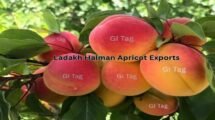Mangoes in Tamil Nadu suffer damage by extreme heat, but farmers remain optimistic.
When P Rajkumar noticed tamarind trees in his village bearing a lot of fruit in January of this year, he knew his mango yield would be low. “This is the thumb rule my ancestors followed,” says the mango farmer from Vanavasi in Salem district: if tamarind trees are fruitful, mango trees will be the opposite, and vice versa. Mangoes are not performing well this season, and farmers are generally disappointed.
“In our district by the Western Ghats, mango farmers received just 10 percent of their usual yield,” says KS Jaganatha Raja, a farmer in Rajapalayam who sells mango saplings at his nursery. “This is due to heavy rains and, now, excessive heat. Instead of flowers, we got new leaves as a result of the heavy rains,” he says, adding that some trees did flower but dried up due to the heat.
Jaganatha owns a 12-acre mango orchard near the foothills of the Western Ghats, where he grows and propagates several rare varieties. “Fruits are not being matured enough, but farmers, fearing winds, tend to get them harvested and sent to the market, despite not getting good prices,” according to him. As a result, traders resort to using chemicals like carbide and ethylene to accelerate fruit ripening.
Also Read | The Misty month of March contributes to a bumper mango crop
Rajkumar recalls his parents putting fruits in straw, covering them with a jute sack, and leaving them alone for a while. “When they ripened, the house would be filled with the heady fragrance of mangoes,” recalls the 60-year-old, who has approximately 550 mango trees and grows imam pasand, Salem Bengaluru, totapuri, neelam, senthooram, and nadusalai mangoes. He is one of the few farmers in the state who is able to produce a reasonable yield through careful planning. “Last year, we had good rains, and we are getting by, by taking care of our trees and watering them sufficiently,” he elaborates.
Rajkumar provides the following clarification: “For mango trees to thrive, the variation between day and night temperatures should not be more than 13 degree Celsius, but now, this surpasses 16 degree Celsius.”
According to farmer Sathish Ramasamy, the fruits in Salem are of high quality, with many ripening quickly. He sells what he harvests at his Sangagiri farm online to customers throughout India. Sathish suggests varieties like Salem Bengalura, nadusalai, panjavarnam, and the tiny but irresistibly sweet sakkarakutty.
Sathish also grows Miyazaki mangos, which are said to be the most expensive in the world. This year, he plans to harvest the variety, which can cost around ₹15,000 per kilogram. “Some of my customers prefer this variety. But if you ask me, it tastes exactly like senthooram mangoes,” he says. Overall, mango prices have risen by 30 to 40 percent. “We sold a kilogram of imam pasand for ₹200 last year, but now it is around ₹300.” he added.
Also Read | Kolar farmers launch online portal for door-to-door mango delivery service
Baskar K, who owns a 40-acre orchard in Palani and grows approximately 500 mango trees organically, says he plans to harvest beginning May 15. “Since there was no flower to fruit conversion, there are only 10 to 15 fruits in my trees,” says Baskar, who has regular customers in Chennai and Bengaluru who buy imam pasand and alphonso. “I don’t know if I’ll be able to sell any this year,” he jokes.
However, he is eager to see if his trees will produce fruits out of season. “This is a cycle, hopefully next year, things will be better,” he continues. Mangoes typically yield every other year.


















Add Comment